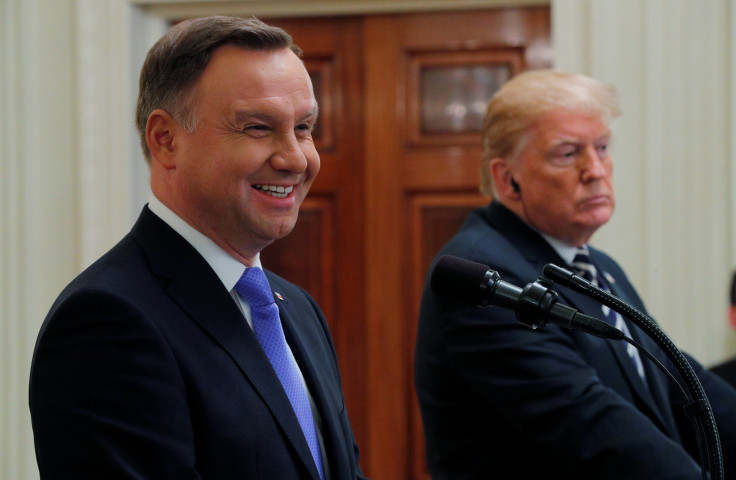Poland Suggests 'Fort Trump' As US Weighs Military Base

President Donald Trump said on Tuesday the United States is considering a request from Poland for a permanent U.S. military presence in the fellow NATO country, acknowledging that he shares Poland's concerns about possible Russian aggression.
Polish President Andrzej Duda asked Trump for a permanent U.S. base during a White House meeting, offering to name it "Fort Trump," and explaining it would be a bulwark against what he considers a threat from Russia.
Trump said he agreed with Duda that Moscow had "acted aggressively" in the region and said the request for a base was under consideration. He said he appreciated Duda's offer to put more than $2 billion into the project.
"We're looking at it very seriously, I know Poland likes the idea very much, and it's something that we are considering, yes," Trump told reporters.
Moscow expressed concern in May over reports about Poland's request, saying NATO’s expansion toward Russia’s borders undermined stability in Europe.
Poland joined NATO in 1999 along with Hungary and the Czech Republic, and since then other former communist states, including Baltic republics bordering Russia, have joined despite Moscow’s strong opposition.
Poland has repeatedly requested a permanent U.S. military presence on its soil. The United States currently rotates troops through Poland temporarily but permanently stationing forces there would be expensive because of costs that can include housing for families, schools and hospitals.
U.S. Defense Secretary Jim Mattis said the U.S. military was studying options with Poland but cautioned that no decisions had been made.
"It’s not just about a base. It’s about training ranges, it’s about maintenance facilities at the base, all these kinds of things. There’s a host of details we’ve got to study alongside the Poles,” Mattis told reporters at the Pentagon.
Trump and Duda also expressed shared concerns about Russia's Nord Stream 2 gas pipeline which they said could make Europe overly reliant on Moscow for energy and expose it to the risks of what Duda called "political blackmail" with shipments.
But Trump said the United States was not looking to sanction companies that participated in the project with Russia. "We just think it's very unfortunate for the people of Germany that Germany is paying billions and billions of dollars a year for their energy to Russia," he said.
In a joint statement released later on Tuesday, after the press conference, Trump and Duda said they will continue coordinating efforts "to counter energy projects that threaten our mutual security, such as Nord Stream 2."
Trump also said the United States was considering a visa waiver program for Poland.
© Copyright Thomson Reuters 2024. All rights reserved.





















